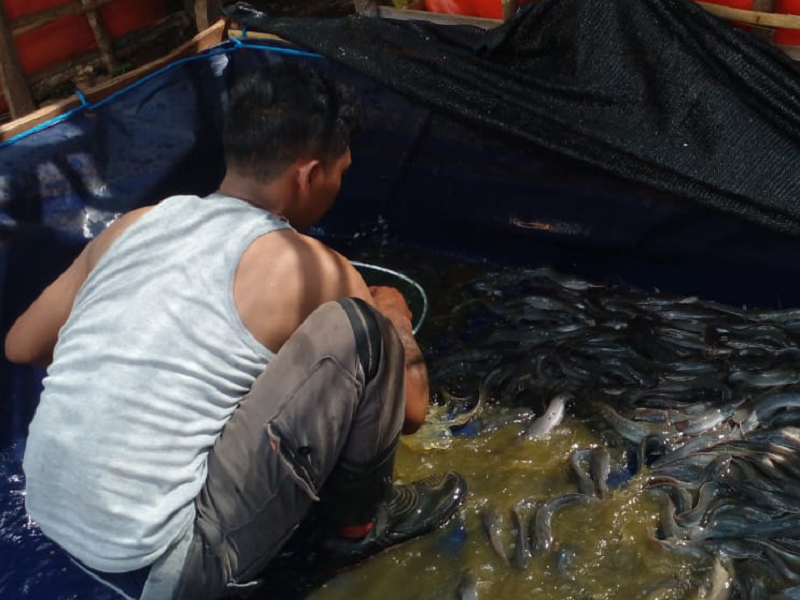Cahyono has been serving tribal people in one of the major islands in Indonesia since 2014.
In the beginning, he installed water filters to serve the community and build relationships with local residents. But in 2017, the organization that was supporting him moved to another Southeast Asian country.
Cahyono chose to stay and continue to serve the community as an independent field worker.
He connects with the community in many ways, including hosting vocational skills and language training sessions. Since the beginning of the pandemic, Cahyono faced a new challenge as people tended to stay home to avoid gathering.
Cahyono produced a plan to breed catfish using a tarpaulin pond to serve the people in his region. Previously, he was a trainer in catfish breeding, so he was already equipped to share his skills with others. He hoped catfish breeding would attract the attention of the residents and be a model for the community.
Through his efforts with breeding and training, he can help the local community’s economy while growing his ministry. What’s most important is his desire to meet people to bring hope and joy to them by sharing the Good News.
Rights group International Christian Concern provided financial assistance to Cahyono to get his catfish breeding business off the ground and to sustain his work for the future.
“The financial assistance ICC provided to us has been used in holistic services with a catfish rearing program using a tarpaulin system,” said Cahyono in a report to ICC.
He said the program “is a way to approach local communities in the area where we live with the Good News.” The funding covers the cost of the facilities he used to reach out to local residents.
The catfish business was able to support the operational costs of the ministry. But as no stranger to adversity, Cahyono had to move to a new location in the city.
As a result, the inventory of the tarpaulin pool and other equipment had to be left behind. The pool fence, made of wood and bamboo, could also not be taken with them.
Though his new operation is smaller, due to the pandemic, the cost of fish food has increased and it’s not the same quality. For Cahyono, it’s hard to make a decent profit.
He has continued his outreach to unreached people in his region, even during the pandemic.
Along with some friends, he is helping to build a learning hut in one of the villages. This learning hut is a place for the field workers to do their outreach. People use the huts to rest or chat—a prime opportunity for sharing hope.
